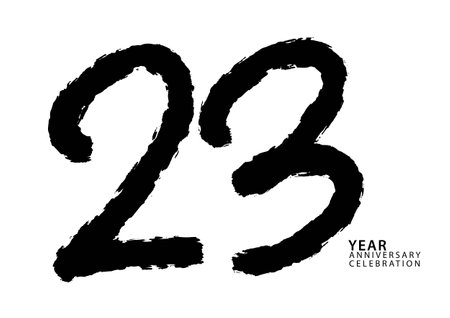1. Understanding Recurring Dreams: Psychological Foundations
Recurring dreams have long fascinated both psychologists and the wider public across Britain, often prompting us to question what lies beneath their persistent nature. From Sigmund Freud’s psychoanalytic interpretations to contemporary cognitive theories, the study of recurring dreams offers a rich tapestry of insights into the human mind. Classical approaches, such as those posited by Freud and Jung, suggest that these repetitive nocturnal narratives might be rooted in unresolved conflicts or subconscious desires, echoing deeper themes from our daily lives. Modern psychological research, meanwhile, leans towards understanding recurring dreams as manifestations of ongoing stressors or emotional patterns—our minds’ way of processing experiences we haven’t yet made peace with. British culture, with its unique historical contexts and social nuances, adds another layer to this phenomenon, shaping not just what we dream about but how we interpret these nightly recurrences. Whether viewed through a Freudian lens or a cognitive-behavioural framework, unpacking the psychology behind recurring dreams is as much about understanding the science as it is about appreciating the distinctly British flavour that colours our interpretations.
2. British Sleep Culture: Nighttime Traditions & Beliefs
Sleep in Britain has always been more than mere rest; it is a canvas for tradition, folklore, and social observation. To truly unpack the psychology of recurring dreams from a British perspective, we must first understand how night-time rituals and beliefs shape our collective dreamscape. This section explores the uniquely British attitudes towards sleep and dreaming, blending historical references, literary echoes, and everyday superstitions.
Historical Folklore: The Supernatural Night
British folklore is rich with tales of spectral visitors and prophetic dreams. The idea that dreams might foretell the future or provide warnings can be traced back to medieval times. For example, it was believed that the “Old Hag” would sit on one’s chest, causing nightmares—a belief that still lingers in some regions. Dreaming of certain symbols—like a white horse or a wedding—was thought to carry specific omens.
Folkloric Dream Interpretations in Britain
| Dream Symbol | Traditional Meaning | Modern Relevance |
|---|---|---|
| White Horse | Good fortune or death | Luck or transformation |
| Running Water | Change or travel ahead | New beginnings or emotional release |
| The Queen | A visit from royalty meant an important message | A symbol of authority or personal power |
| The Old Hag | An omen of nightmares or bad luck | Linked to sleep paralysis experiences today |
Literary References: From Shakespeare to Dickens
The British literary canon is replete with references to dreams as both plot devices and psychological mirrors. Shakespeare famously explored the boundary between dream and reality in plays like “A Midsummer Night’s Dream,” while Dickens used dream sequences to reveal character anxieties and hopes. These narratives reinforce the cultural belief that dreams are windows into deeper truths—both personal and societal.
Popular Beliefs & Everyday Rituals
Even today, many Britons hold onto simple night-time rituals rooted in tradition—be it a cup of chamomile tea before bed or leaving a window slightly open “to let the dreams out.” There is also a tendency to discuss dreams over breakfast, turning the mysterious into communal conversation. Some believe eating cheese late at night brings on vivid dreams—a notion so widespread it borders on national myth.
Cultural Practices Still Alive Today:
- Bedtime Tea: Calming herbal infusions believed to ensure peaceful sleep.
- The Dream Diary: Journaling dreams as a tool for self-understanding.
- No Shoes on the Bed: A superstition thought to ward off bad dreams.
- “Sweet Dreams” Wishes: Shared nightly as an expression of care and protection.
This blend of history, literature, and lived tradition shapes not only how Britons approach sleep but also how they interpret recurring dreams—often viewing them as layered messages shaped by both culture and psyche.

3. Common Recurring Dreams in the UK: What Keeps Us Up at Night?
It’s often said that our dreams are shaped by the world around us—and nowhere is this truer than in the United Kingdom, where certain recurring dream motifs seem to unite Brits across generations and regions. When we delve into the tapestry of British recurring dreams, a handful of themes rise swiftly to the surface, each echoing deep-seated anxieties and cultural touchstones unique to life on these isles.
Taking A-Levels (Again): The Nightmare of Eternal Exams
Perhaps one of the most quintessentially British recurring dreams involves finding oneself back in the exam hall, facing A-levels or GCSEs all over again—often woefully unprepared. This scenario haunts not just students but adults well into their careers, revealing a national anxiety about performance, expectation, and the high-stakes nature of British education. The persistent fear of academic failure speaks volumes about how formative these experiences are in shaping our self-worth and societal status.
Missing the Last Train Home: Navigating the Night
Another motif that keeps many a Brit awake is missing the last train home—a situation laden with both practical and emotional resonance. In a country where public transport is a lifeline, especially for those living outside London, being stranded far from home can evoke feelings of isolation, helplessness, and disconnection. This dream encapsulates both literal fears about mobility and deeper worries about losing one’s way or failing to meet obligations.
Losing Teeth and Other Universal Anxieties
While losing teeth is a common dream theme worldwide, its interpretation takes on subtle shades within British culture. Given the notorious reputation of “British teeth” in global popular culture, these dreams may tap into underlying insecurities about appearance and stereotypes, as well as broader concerns about communication or loss of control.
The Cultural Undercurrents
What ties these recurring dreams together is their resonance with shared aspects of British life: the pressure-cooker environment of exams, reliance on timetabled routines, and a collective tendency toward self-deprecation. These nightly narratives act as mirrors for wider societal patterns—whether it’s the stoic endurance demanded by British institutions or the understated dread of letting others down. By understanding what keeps us up at night, we catch a glimpse not just into individual psyches but into the beating heart of contemporary British identity.
4. Dream Analysis in British Pop Culture
Recurring dreams have long fascinated the British public, and their portrayal across film, art, and media offers a unique lens through which to interpret collective anxieties and aspirations. In British cinema, directors often use dream sequences not merely as narrative devices but as windows into characters’ subconscious struggles. For instance, films like Christopher Nolan’s “Inception” — though international in scope — resonate strongly with British audiences for their intricate exploration of dream layers and reality. On television, classic series such as “Doctor Who” or “Black Mirror” frequently weave recurring dreams into episodes, framing them as metaphors for societal change or technological unease.
The Artistic Language of Dreams
British visual artists have also tapped into the motif of recurring dreams. From the surrealist paintings of Paul Nash to the evocative installations by Tracey Emin, dreams are depicted as both intensely personal and culturally reflective experiences. These works often blur the boundaries between waking life and imagination, inviting viewers to interrogate their own subconscious fears or desires within a distinctly British context—think foggy moors, rain-soaked cityscapes, and eccentric domestic settings.
Media Influence on Public Perception
Media representations shape how the public interprets their own recurring dreams. Popular magazines, radio shows like BBC’s “Desert Island Discs,” and even tabloid columns regularly explore dream meanings, reinforcing certain stereotypes (such as dreaming of losing teeth representing anxiety) while also opening space for nuanced interpretations. The table below highlights some prominent British media examples and the common dream themes they portray:
| Media Example | Recurring Dream Theme | Cultural Interpretation |
|---|---|---|
| BBC Radio Dramas | Being Chased | Anxieties about social change or personal responsibilities |
| The Guardian Opinion Pieces | Falling or Flying | Desire for freedom versus fear of failure |
| British Soap Operas | Losing One’s Way | Navigating class mobility or personal identity |
A Crossroads of Reality and Imagination
This interplay between pop culture and individual experience means that many Britons interpret their recurring dreams through a culturally informed filter. Whether it’s the stoic humour found in sitcom dream sequences or the existential dread echoed in modern art exhibitions, these representations reinforce the idea that dreams are not just private phenomena but communal stories woven into the broader tapestry of British identity.
5. Practical Approaches: Navigating Persistent Night-time Narratives
When those all-too-familiar dream sequences refuse to fade into the morning mist, it’s only natural to wonder how best to manage them—especially if they start to chip away at your nightly rest or daily peace of mind. British sensibility often champions a blend of pragmatism and understated resilience, so let’s unpack some practical strategies tailored for our UK context.
Keep a Dream Diary: The Power of Pen and Paper
Start with something simple yet effective: jotting down your dreams upon waking. This classic British habit—akin to journaling with a cup of builder’s tea—can help you spot patterns and triggers over time. By turning the abstract into something tangible, you might find recurring themes less daunting and more manageable.
Establish a Soothing Bedtime Routine
Many experts recommend creating a calming wind-down ritual. Whether that means reading a few pages of a favourite novel (Dickens or Rowling, anyone?), enjoying herbal tea, or practising gentle mindfulness exercises, these small acts can help ease anxiety and reduce the intensity of recurring dreams.
Talk It Out: The British Way
While Brits are famed for their stiff upper lip, there’s growing recognition of the value in opening up—be it with mates at the pub or through professional channels. If your dreams become particularly disruptive, consider speaking with a GP or a certified sleep specialist. Cognitive behavioural therapy (CBT) is well-regarded in the NHS for addressing persistent night-time disturbances.
When to Seek Further Support
If recurring dreams start affecting your mood, work performance, or relationships, it’s wise not to soldier on alone. Reach out for guidance—most local surgeries offer mental health support, and charities like Mind or Samaritans provide confidential advice. Remember, seeking help isn’t un-British; sometimes the bravest thing you can do is ask for a helping hand.
Ultimately, managing recurring dreams is about blending self-awareness with practical action. By drawing on both expert guidance and Britain’s unique cultural toolkit—from reflective writing to accessible healthcare—you can navigate even the most persistent night-time narratives with greater confidence and clarity.
6. British Sense of Humour: Laughing at Our Nightmares
It’s no secret that the British are famous for their dry wit and understated humour, especially when life gets a bit grim. But what happens when our unconscious minds conjure up unsettling or downright bizarre recurring dreams? Rather than cowering under the duvet, many Brits reach instinctively for laughter as their first line of defence. This unique cultural response is more than just stiff upper lip—its a psychological coping mechanism that transforms anxiety into something more manageable.
The Power of Irony and Self-Deprecation
When it comes to processing disturbing dreams, irony and self-deprecation are quintessentially British tools. Sharing a story about being chased by a giant tea bag or arriving naked at Buckingham Palace becomes less mortifying—and even a bit hilarious—when recounted with a wry smile down the pub. This communal chuckle not only diffuses personal embarrassment but also reinforces social bonds through shared experience.
Why We Laugh in the Face of Fear
Laughter has long been touted as the best medicine, and nowhere is this truer than in the British approach to dream analysis. By poking fun at our subconscious anxieties, we gain a sense of control over them. Joking about nightmares isn’t denial; it’s an act of resilience—a way to demystify our fears and put them in perspective. After all, if you can laugh at your own mind’s eccentricities, they lose much of their power.
Cultural Commentary and Satire
This penchant for humour extends beyond personal anecdotes. From Monty Python sketches lampooning Freudian psychoanalysis to satirical newspaper columns dissecting dream symbolism, British culture consistently finds ways to weave wit into discussions of the subconscious. The result? A rich tradition where even our most unsettling dreams become fodder for clever commentary rather than sources of shame.
In essence, the British sense of humour offers both solace and strength, turning nightmares into punchlines and private fears into public banter. It’s an approach that not only lightens the psychological load but also connects us to one another—proving that sometimes, a good laugh really does keep the monsters at bay.


